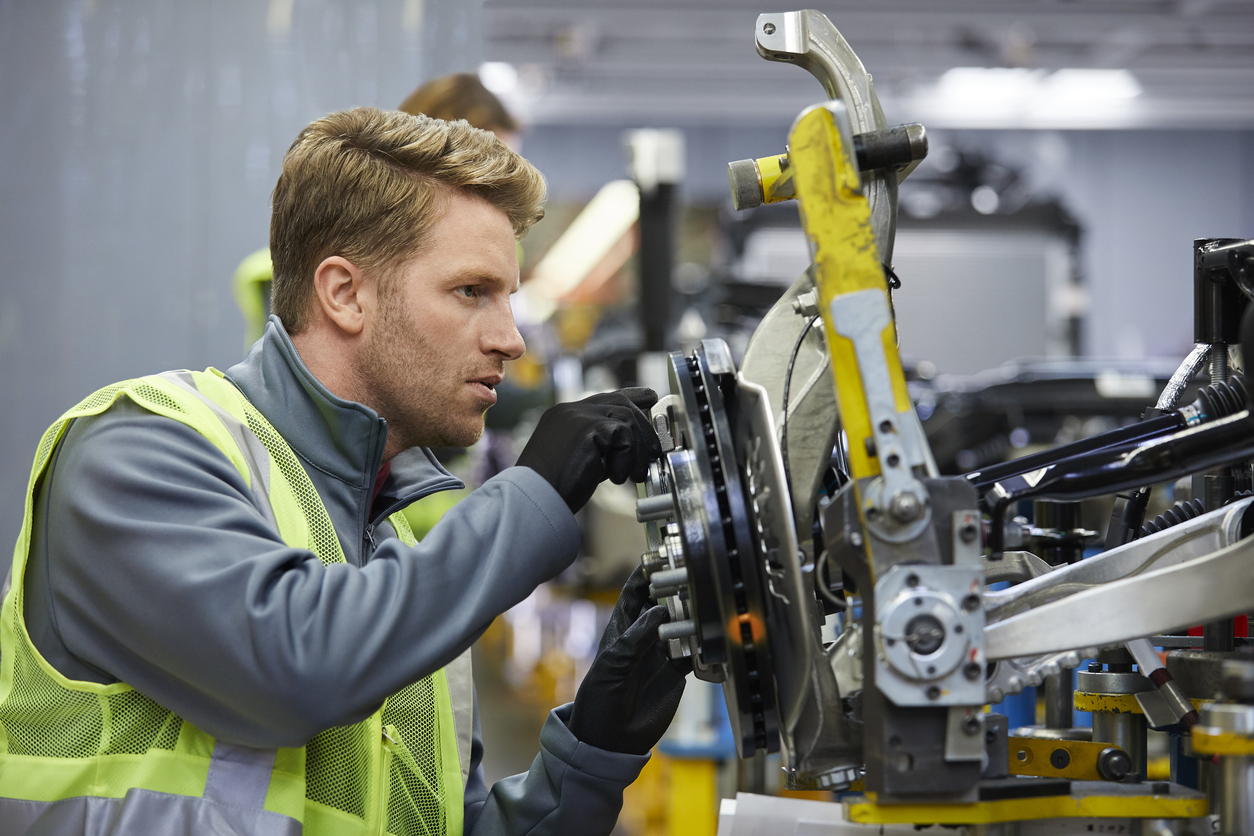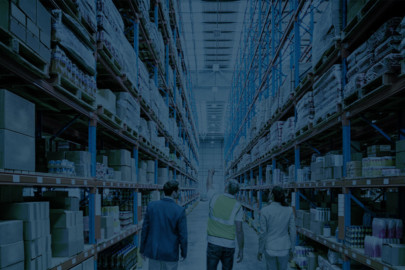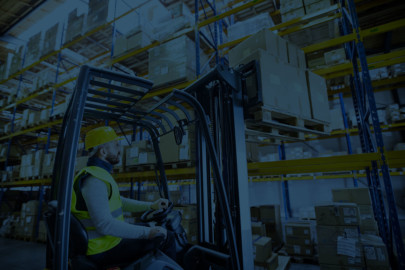An Essential Guide to Using Third-Party Logistics for Auto Parts Fulfillment
The last four years have not been kind to the automotive industry, particularly impacting the realm of auto parts fulfillment. Many in the auto parts market suffered supply chain disruptions because of factory shutdowns, labor shortages, and transportation constraints. Changes in consumer behavior saw a decline in new vehicle purchases and parts. However, the auto parts and aftermarket auto parts markets are gradually returning to prepandemic levels, emphasizing the critical need for efficient auto parts fulfillment services.
The auto parts market is expected to experience a 3.7% compound annual growth rate (CAGR) through 2028. The aftermarket auto parts industry is expected to have a CAGR of 4.0% through 2030. Growing markets place added pressure on manufacturers, distributors, and retail stores to deliver parts efficiently and cost-effectively.
As the market increases, so does the competition in the realm of auto parts fulfillment. Consumers may have tolerated longer wait times because of supply chain disruptions in the past but have lost patience with delays and empty shelves. They expect auto parts to be available in-store and online, with home delivery options. An experienced third-party logistics (3PL) can help meet those customer expectations.
What Should You Look for in a 3PL Company?
There’s more to logistics than getting goods from point A to point B. What condition will the parts be in? How fast can items be delivered? How large is the 3PL’s network? Can parts be warehoused in multiple locations? Are the locations close to transportation hubs?
Answers to these questions can help businesses find the right 3PL provider for auto parts fulfillment.
Proximity to Manufacturers
If your company makes car parts, having a 3PL provider with locations close to manufacturing sites ensures prompt delivery. For example, the majority of assembly plants are east of the Mississippi, many within miles of Chicago and Detroit. Having facilities in these cities reduces the time it takes to move parts from a 3PL distribution center to a manufacturer.
Close proximity to key markets reduces lead times and improves supply chain efficiencies. It’s more cost-effective to warehouse supplies at facilities that are close to your customers. 3PLs with multiple locations can ensure your inventory is close to your primary customers.
eCommerce Fulfillment Expertise
If you are one of the 7,700 auto parts distributors, your logistic needs require fast delivery to car owners, auto repair shops, and retailers. If your business includes online sales, you need a logistics provider that understands eCommerce. Thanks to the Amazon Effect, consumers expect next-day delivery on anything ordered online — including auto parts.
3PL companies with eCommerce expertise are comfortable with online fulfillment. They understand why reducing the time from order placement to fulfillment is crucial to fast delivery. They use technology to handle the rapid pace of online sales.
Auto Parts Fulfillment Experience
There are 30,000 components in an average car, counting everything from hoods to bolts. Making sure that all parts arrive on time to make thousands of cars in a day takes careful planning. As part of the auto parts industry, you want a 3PL partner who understands how delays or poor packaging can disrupt the assembly line.
Warehousing auto parts for distribution often requires special handling. Large replacement parts such as doors, trunks, and hoods can consume space unless the 3PL knows how to store items safely and as cost-effectively as possible. Electronics are also part of today’s automobiles. They require special handling to reduce static and avoid environmental changes that can damage them.
Handling Industrial Goods
Not every 3PL handles industrial goods. Some logistics companies focus on finished goods rather than raw materials or building components because of added requirements. Shipping industrial goods requires 3PLs with experience. They can advise on packaging, identify special handling requirements, and obtain special permits when necessary.
For companies to thrive in the auto parts fulfillment industry, it is essential to expand and adapt to meet the surge in demand for components tailored to the burgeoning electric vehicle (EV) market. Crucial elements such as lithium battery storage systems, specialized electronic components and charging infrastructure may require specialty storage and transportation specifications to meet standards set by certain manufacturers or government regulators.
Working with knowledgeable 3PLs ensures your goods are stored and transported safely. They can facilitate the end-to-end handling of industrial goods to improve transparency in tracking high-value components. They realize that handling industrial goods is not the same as shipping a container of pallets.
Trucking Capabilities
In-house trucking capabilities are essential if 3PLs want to mitigate supply chain disruptions. With the ongoing labor shortage in the shipping sector, disruptions are bound to happen. Some days, there may simply not be enough drivers to deliver auto parts on time.
3PLs with trucking capabilities can step in to alleviate supply chain pressures that can disrupt delivery schedules. By using transportation management solutions, 3PLs can divert their fleets to avoid unnecessary delays. They also know the status of their trucks and drivers to ensure availability when needed.
National Presence
The auto parts industry is not regional. A RAM-150 engine should be the same regardless of where the truck is assembled. If the assembled engine is produced in Cleveland, it will need to reach plants in Detroit, Kansas City, and San Antonio. If a 3PL does not have national coverage, companies may find they are working with multiple vendors to deliver engines to all locations.
3PLs with coast-to-coast networks of warehouses and fulfillment centers can deliver Cleveland-made engines to factories throughout the United States. The engines will arrive in the same packaging and condition regardless of location. Manufacturers do not have to monitor several logistics companies to ensure a consistent experience.
Digital First
According to Supply and Demand Chain Executive, using technology is essential to operational superiority. Older solutions do not have the flexibility and speed needed to compete in today’s market. Today’s technology can ensure end-to-end transparency, creating a better experience for brands, customers, and consumers.
For example, warehouse management solutions (WMS) allow 3PLs to manage inventory to maintain levels to avoid stockouts or excess supply. The technology can deliver alerts when inventory drops below a threshold. It can also track shipments arriving or leaving the warehouse. Armed with this data, auto parts suppliers can make informed decisions on inventory.
Flexibility and Scalability
The auto parts industry needs logistics partners that can handle its special needs. That requires a 3PL that has the flexibility to pivot to address the unique demands of different manufacturers. They also need to have the capacity to scale as customers’ inventory requirements change.
Distributors seeking to optimize inventory and reduce operational burdens should consider a Vendor Managed Inventory (VMI) model. In this supply chain management strategy, the businesses’ inventory is stored and managed by either the supplier or a 3PL provider. The business is provided with real-time inventory data and reorder capabilities, allowing them to ensure accurate replenishment. In some instances, the supplier or 3PL may take responsibility for monitoring and replenishing a customer’s inventory.
Industry fluctuations are unpredictable. Who would have predicted plummeting car sales two years ago? Or the labor strike that stopped car production for six weeks? Those unexpected changes impacted auto parts suppliers and the 3PLs that supported them. Suppliers want to work with 3PLs who are responsive to their market changes.
Collaborative Culture
Businesses partnering with 3PLs that have a collaborative culture can realize significant benefits. For example, an auto parts manufacturer partnered with a 3PL provider that offered technology-enabled solutions to improve inventory accuracy and fulfillment times by 50%.
Another example involved a change in the shipments of goods from Pennsylvania to Atlanta. The customer decided to increase shipments to Atlanta to an average of 20 trucks per week, all arriving on Thursday and Friday. These two days were also the customer’s heaviest shipping days from Atlanta to Washington, DC. The congestion led to lower inbound processing rates.
When the customer and the 3PL came together, they were able to work out a schedule that concentrated the inbound shipments on Monday and Tuesday. The Atlanta warehouse was able to remove the bottleneck that slowed inbound processing, providing the customer with a smoother supply chain.
In both examples, companies collaborated to improve service, efficiency, and customer satisfaction while reducing costs. They demonstrated the flexibility to adapt to market changes that benefited both the customer and the 3PL.
What Should a 3PL Provide Auto and Aftermarket Parts Suppliers?
The right 3PL company is flexible and collaborative. It is willing to work with its customers to create a seamless supply chain that delivers parts in pristine condition and on time. Without those characteristics, suppliers may struggle to meet changing market demands and to weather supply chain disruptions.
To find the best logistics company for their needs, auto parts suppliers need to look beyond the culture. They need to look for the following:
- Scalability. Does the 3PL have the capacity to scale up and down to address changes in demand?
- Technology. 3PLs should incorporate advanced technologies into their operations to provide their customers with information to help make data-driven decisions.
- National Network. Suppliers that sell nationwide need a 3PL that has a national presence.
- Trucking Capabilities. 3PLs with in-house trucking operations have the flexibility to address disruptions to minimize their impact on deliveries.
- Auto Parts Fulfillment. Shipping auto parts has unique challenges. Parts can be large and bulky. They can require controlled environments to protect electronics. Companies need 3PLs that have experience in auto parts fulfillment.
- Close to Manufacturers. 3PLs conveniently located close to car manufacturers can reduce lead times and shorten delivery cycles.
- eCommerce Fulfillment Expertise. For distributors and retailers, an eCommerce fulfillment experience is a must to ensure a positive customer experience. 3PLs with online order fulfillment expertise have systems in place to receive and fill orders efficiently for fast delivery.
Whether your business supplies parts to car manufacturers or sells aftermarket items to consumers, you need a 3PL with a national network to deliver your products cost-effectively. You need a partner that will work with you to help achieve your business goals. Contact us to discuss how Symbia Logistics can help.











